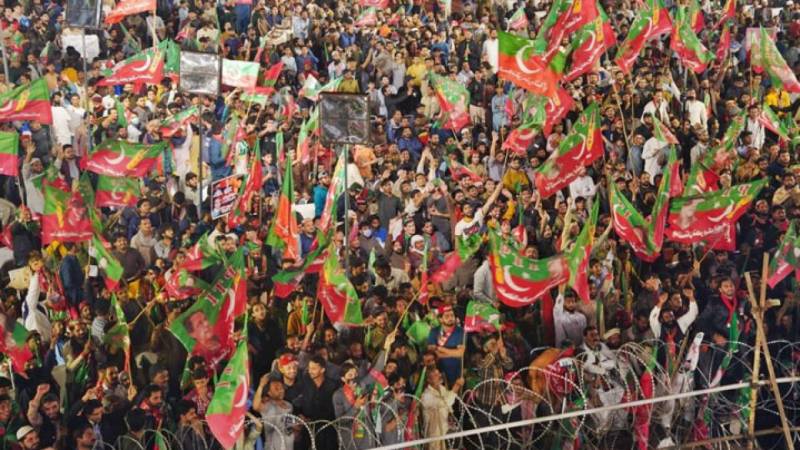
This upcoming election is poised to be an exceptionally distinctive event in the remarkable history of Pakistan. While the exact date of the election remains uncertain, there is a widespread consensus regarding the anticipated victor. This is not because a particular political party enjoys overwhelming popularity among the electorate, nor is it due to an exceptionally groundbreaking manifesto. Instead, it hinges on the backing of those who wield significant influence and authority in the political landscape.
In recent developments on Pakistan's political landscape, Bilawal Bhutto, the Chairman of the Pakistan People's Party, has been urging the Election Commission to promptly announce the date for the upcoming elections. Alongside him, several members of his party have raised concerns about the perceived inclination of state institutions and the caretaker government toward the Pakistan Muslim League (N). Such concerns have raised apprehensions that this bias may compromise the integrity of the electoral process, potentially leading to political instability and the perception that the election is a selection rather than a genuine democratic exercise. It is imperative to dissect the ramifications of these concerns, as Pakistan stands at a critical juncture, grappling with both political and economic challenges.
Bilawal Bhutto's demand for the timely announcement of the election date is rooted in the fundamental principles of a democratic system. Ensuring a level playing field for all political parties is not only a moral imperative but also a legal requirement. Timely elections, conducted transparently and without undue influence, are crucial for upholding the democratic ideals that Pakistan strives to maintain.
The persistent concerns regarding the potential bias of state institutions and the caretaker government have implications that extend far beyond mere political maneuvering. If not addressed transparently and effectively, these concerns can undermine the very foundation of democracy in Pakistan. A perception that elections are compromised can erode public trust in the political process, leading to disaffection and political unrest. The populace may view the results as a selection, rather than a true representation of their democratic will.
The granting of official protocol to Nawaz Sharif not only underscores the dubious practice of granting state privileges to individuals facing legal charges, but also serves as a stark illustration of the complex interplay between politics and the judicial system in our country.
The way in which a fugitive, regardless of the legal judgment that resulted in their imprisonment, was granted official state protocol raises significant concerns about the integrity of our justice system. Notably, Justice Ijaz Anwar of the Peshawar High Court sarcastically noted that extending state protocol to a declared offender was not a matter of great significance in Pakistani system. If a respected High Court Judge lacks faith in our justice system, why should foreign investors have confidence in our legal system and choose to invest their capital here? This situation couldn't be more absurd.
This issue came to the forefront when the Advocate General of Khyber Pakhtunkhwa highlighted the fact that permission had been sought for a political convention set to take place in the Hujra (traditional gathering place) of an individual declared a proclaimed offender by the court. The convention in question was organized by the Pakistan Tehreek-e-Insaf (PTI) and was scheduled to be held in the Hujra of the former provincial minister, Atif Khan, who had been officially declared an absconder by a court of law.
The granting of official protocol to Nawaz Sharif not only underscores the dubious practice of granting state privileges to individuals facing legal charges, but also serves as a stark illustration of the complex interplay between politics and the judicial system in our country. It calls into question the principles of justice and equality that form the bedrock of any democratic society.
Furthermore, the absence of the PTI in the electoral arena could open the door for religious parties, such as Jamiat-e-Ulema Islam (JUI-F), which historically have taken a more lenient stance towards organizations like the Tehrik-i-Taliban Pakistan (TTP) and other militant groups.
Holding elections without the participation of the PTI would have profound and far-reaching consequences for the country. This concern is particularly pronounced in the case of Khyber Pakhtunkhwa (KP), where the volatile nature of the province adds an additional layer of significance to the issue. While one may hold differing political views regarding Imran Khan and his party, it's indisputable that the PTI commands significant popularity in KP. Excluding the PTI from the electoral process risks alienating its substantial support base, and compromising the legitimacy of the government that will take the reins of power in 2024.
Furthermore, the absence of the PTI in the electoral arena could open the door for religious parties, such as Jamiat-e-Ulema Islam (JUI-F), which historically have taken a more lenient stance towards organizations like the Tehrik-i-Taliban Pakistan (TTP) and other militant groups. A scenario where the Taliban government is established in Afghanistan, and the JUI-F assumes control in KP, could have disastrous consequences for Pakistan's stability and security.
Ensuring the participation of all political actors, including the PTI, in the electoral process is essential to maintain a balanced and democratic political landscape in Khyber Pakhtunkhwa and to mitigate the potential risks associated with extremism and instability.
Pakistan's international standing is closely linked to its domestic political stability and democratic processes. Holding elections without PTI might raise concerns within the international community about the fairness and inclusivity of Pakistan's electoral system. This, in turn, could have implications for foreign relations and partnerships.
It is imperative to recognize that the participation of all political actors, including the PTI, is vital for the health of Pakistan's democracy. Excluding the PTI from any election would not only be an injustice to its supporters but also a disservice to the democratic principles that underpin the nation's governance. Ensuring a level playing field for all political parties is essential for Pakistan's continued growth, stability, and the preservation of its democratic values. A democratic Pakistan, with diverse and inclusive elections, is a stronger and more resilient Pakistan.

